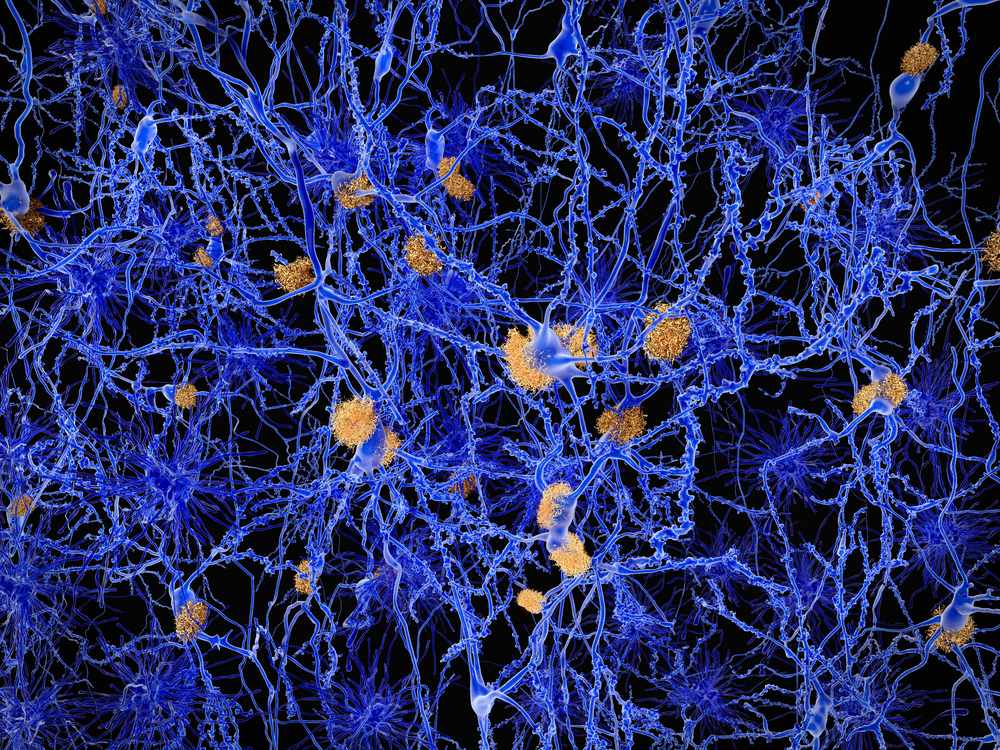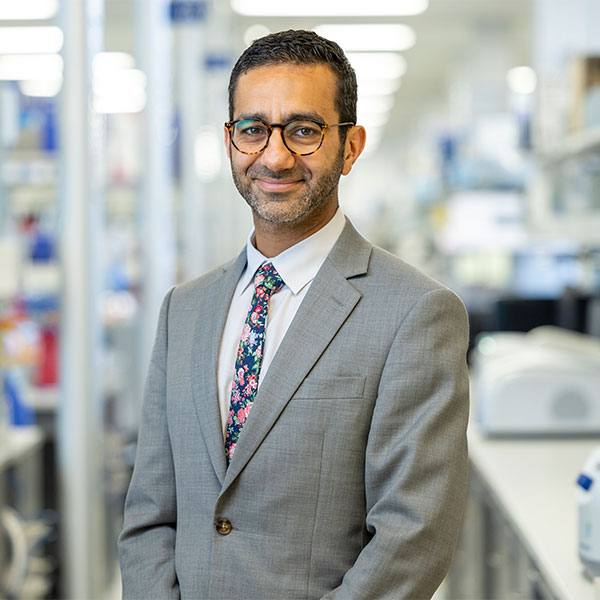-
Trove of Alzheimer’s patients’ molecular, clinical data available
 JACKSONVILLE, Fla. — In what the National Institutes of Health (NIH) has described as a pioneering effort, a research team at Mayo Clinic’s campus in Jacksonville, Florida, has made public a treasure trove of data aimed at accelerating development of therapies for Alzheimer’s disease.
JACKSONVILLE, Fla. — In what the National Institutes of Health (NIH) has described as a pioneering effort, a research team at Mayo Clinic’s campus in Jacksonville, Florida, has made public a treasure trove of data aimed at accelerating development of therapies for Alzheimer’s disease.
The data, a description of which is published in Nature Scientific Data, “implicates a number of genes that are likely to be involved in disease pathways, providing researchers with many testable hypotheses,” says the study’s senior investigator, neurologist and neuroscientist Nilufer Ertekin-Taner, M.D., Ph.D.
The study details whole-genome genotype and gene expression patterns on 2,655 individuals, including people with dementia and those without it. The data includes more than 842 million datapoints and clinical information that will enable researchers around the world to study what is different about Alzheimer’s brains and what can be done to prevent, treat or stop the disease, Dr. Ertekin-Taner says.
“By making available these very large, high-quality molecular and clinical data sets, we are inviting other investigators to mine the information and test their notions of how best to develop treatment,” she says. “Release of this data represents a novel type of sharing paradigm.”
Publication of the data and its description in the supporting study are, in part, a product of a 2013 $7.5 million grant from the NIH aimed at bringing together large data and expertise from different groups to understand Alzheimer’s and other forms of dementia in a way that advances prevention and treatment.
“The complexity of the human brain and the processes involved in development and progression of Alzheimer’s disease have been major barriers to drug development,” says Suzana Petanceska, Ph.D., program director in the Division of Neuroscience at the National Institute on Aging, part of the National Institutes of Health. “It is key to make these invaluable datasets widely accessible and usable by the larger research community to speed up the generation of knowledge needed for successful therapy development.”
Journalists, sound bites with Dr. Mariet Allen are available in the downloads below.
This multiteam study is led by:
- Ertekin-Taner, Mayo Clinic
- Steven G. Younkin, M.D., Ph.D., Mayo Clinic
- Todd E. Golde, M.D., Ph.D., University of Florida
- Nathan Price, Ph.D., Institute for Systems Biology
They are all co-authors on the study, along with 26 researchers from these institutions and Sage Bionetworks in Seattle. The Nature Scientific Data is the first paper from this multicenter group. This team is one of six other multi-center teams participating in the Accelerating Medicines Partnership for Alzheimer’s Disease (AMP-AD) Target Discovery and Preclinical Validation Project, a large-scale team science effort applying open science principles to discover the next generation therapeutic targets for Alzheimer’s disease.
The study’s lead researchers, Mariet Allen, Ph.D., and Minerva M. Carrasquillo, Ph.D. —both assistant professors of neuroscience on Mayo Clinic’s Florida campus — are responsible for heading analyses of the two key kinds of data included in this trove, says Dr. Ertekin-Taner.
MEDIA CONTACT: Kevin Punsky, Mayo Clinic Public Affairs, 904-953-0746, punsky.kevin@mayo.edu
Dr. Carrasquillo is the first author of a genome-wide association study (GWAS) to examine genetic variation in different individuals to see if these variations were associated with Alzheimer’s disease. The data from this study, which was previously released and published in Nature Genetics in 2009, also are included in this study.
“All the key GWAS data from our study for Alzheimer’s is available, which will enable other research groups to ask questions we might not be asking and to use the genomic data to validate findings on specific genes,” she says.
Dr. Allen leads studies that look at the correlation of gene expression levels with genetic variants within the whole genome — a study known as an eGWAS. Protein-coding genes first express molecules known as messenger RNAs, and an eGWAS looks at the quantity of mRNAs that is linked to different genetic variants. The premise is that genetic variants that influence the expression of mRNAs encode critical molecular members of disease pathways, which also influence disease risk.
In 2012, Dr. Allen, working with Dr. Ertekin-Taner, published a large eGWAS on Alzheimer’s disease and made the data public. The researchers compared results of the GWAS and the eGWAS looking to see if “any gene variant that has an effect on Alzheimer’s has that effect through differences in gene expression,” says Dr. Allen. They also looked to see when mRNA expression is not altered and if a gene variant linked to the disease exerts influence on expression of nearby genes.
Investigators found that there is significant overlap among disease GWAS and eGWAS variants, especially in brain regions that are affected by Alzheimer’s disease and other forms of dementia, and that many risk variants for these disorders influence brain levels of genes nearby.
The new release of data includes these and additional expression data generated from the 2013 grant.
All of the associations and the raw data are published on the Accelerating Medicines Partnership in Alzheimer’s Disease (AMP-AD) Knowledge Portal and available to qualified researchers.
Other study co-authors are:
- Fanggeng Zou, Ph.D., Mayo Clinic
- Curtis S. Younkin, Mayo Clinic
- Jeremy D. Burgess, Mayo Clinic
- Julia Crook, Ph.D., Mayo Clinic
- Xue Wang, Ph.D., Mayo Clinic
- Daniel Serie, Mayo Clinic
- Thuy T. Nguyen, Mayo Clinic
- Sarah Lincoln, Mayo Clinic
- Kimberly Malphrus, Mayo Clinic
- Gina Bisceglio, Mayo Clinic
- Ma Li, M.S., Mayo Clinic
- Yan Asmann, Ph.D., Mayo Clinic
- Neill R. Graff-Radford, M.D., Mayo Clinic
- Dennis W. Dickson, M.D., Mayo Clinic
- Cory Funk, Ph.D., Institute for Systems Biology
- Benjamin D. Heavner, Ph.D., Institute for Systems Biology
- James A. Eddy, Ph.D., Institute for Systems Biology
- Hongdong Li, Ph.D., Institute for Systems Biology
- High-Seng Chai, Ph.D., Mayo Clinic
- Chen Wang, Ph.D., Mayo Clinic
- Ronald C. Petersen, M.D., Ph.D., Mayo Clinic
- Ben Logsdon, Ph.D., Sage Bionetworks
- Mette A. Peters, Ph.D., Sage Bionetworks
- Kristen K. Dang, Ph.D., Sage Bionetworks
- Lara M. Mangravite, Ph.D., Sage Bionetworks
Tissue donation and samples from Mayo Clinic’s Florida campus and the Sun Health Research Institute Brain and Body Donation Program of Sun City, Arizona, were used in this study.
Data collection on Mayo Clinic’s Florida campus was funded by National Institute on Aging grants P50 AG016574, R01 AG032990, U01 AG046139, R01 AG018023, U01 AG006576, U01 AG006786, R01 AG025711, R01 AG017216, R01 AG003949, National Institute of Neurological Disorders and Stroke grant R01 NS080820, CurePSP Foundation, and support from Mayo Foundation.
Allen, M et al. Human whole genome genotype and transcriptome data for Alzheimer's and other neurodegenerative diseases. Sci. Data 3:160089 doi: 10.1038/sdata.2016.89 (2016).
###
About Mayo Clinic
Mayo Clinic is a nonprofit organization committed to clinical practice, education and research, providing expert, whole-person care to everyone who needs healing. For more information, visit http://www.mayoclinic.org/about-mayo-clinic or https://newsnetwork.mayoclinic.org/.







